Today I suggest we talk about Exalted, the ability that first appeared in Shards of Alara and made a comeback in Magic2013. We'll take Sublime Archangel as a muster.
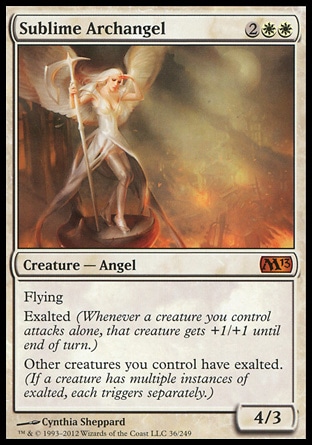
Oracle Text:
Creature — Angel
Flying
Exalted (Whenever a creature you control attacks alone, that creature gets +1/+1 until end of turn.)
Other creatures you control have exalted. (If a creature has multiple instances of exalted, each triggers separately.)
Sublime Archangel is a white creature with subtype Angel. It doesn’t have any supertypes. The fact that it is mythic rare only impacts its retail price. It bears no meaning in terms of the game.
Sublime Archangel has three abilities.
We know Flying very well, it’s a static ability we have encountered many times.
Sublime Archangel’s third ability is static. It functions while the Archangel is on the battlefield, and gives all other creatures under its owner’s control Exalted. This immediately concludes that:
If your cunning opponent uses Olivia Voldaren’s third ability and steals your Sublime Archangel, the Exalted bonus is given to his creatures, not yours.
If the cunning opponent removes all abilities from your Archangel, unfortunately, its third ability isn’t effective either.
All is left to discuss is Sublime Archangel’s second ability:
Exalted
Exalted is a triggered ability, we can easily determine this by the word “whenever” in its reminder text. When we deal with reminders, we better consult the rules:
702.82a. Exalted is a triggered ability. “Exalted” means “Whenever a creature you control attacks alone, that creature gets +1/+1 until end of turn”.
The triggering event for Exalted is “a creature you control attacks alone”. To help us figure this out, the rule has another subrule to comment on it:
702.82b. A creature “attacks alone” if it’s the only creature declared as an attacker in a given combat phase. See rule 506.5.
Since we are referred to another rule, I know of no reason for the noble ladies and gentlemen not to take a glance on it:
506.5. A creature attacks alone if it's the only creature declared as an attacker during the declare attackers step. A creature is attacking alone if it's attacking but no other creatures are. (…)
The first sentence of rule 506.5 is directly related to Exalted, whereas its second sentence has no links to it. It is essential not to confuse these two things here. Anyone who has been following my articles knows what I mean when I say “Every word matters in Magic”; some may find this motto too dramatic. If you do, take this example and see below:
We can conclude that in order for Exalted to trigger, we need to declare only one creature we control attacking.
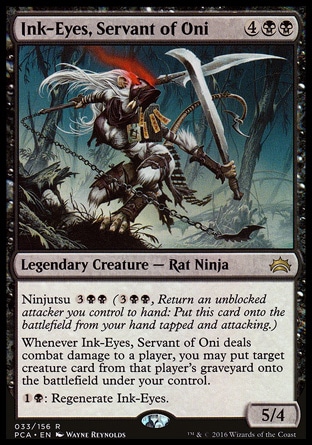
During the declare attackers step your declare one creature attacking (Exalted triggers go off and the creature gets its bonuses, but that’s not what we focus on right now).
Suppose that the opponent assigns no blockers.
You activate Ninjutsu and put Ink-Eyes, Servant of Oni onto the battlefield attacking.
Exalted doesn’t react to this. Ink-Eyes, Servant of Oni has never been declared an attacker. The triggering event doesn’t happen in this case.
If you declare multiple creatures attacking, and then for some reason only one of them is left, that doesn’t trigger Exalted.
In Two-Headed Giant only one creature must be declared an attacker for the entire team in order to trigger Exalted. Only the head that controls that creature will have Exalted triggered, since creatures do not share control over their creatures (“whenever a creature you control attacks alone…”).
If the triggering event occurs (the creature you control attacks alone), all instances of Exalted on all permanents you control trigger. Then, when the time comes, you put them onto the stack in the order you like. As each of them resolves, the attacking creature gets +1/+1 each time, totalling in the number of resolved triggers.
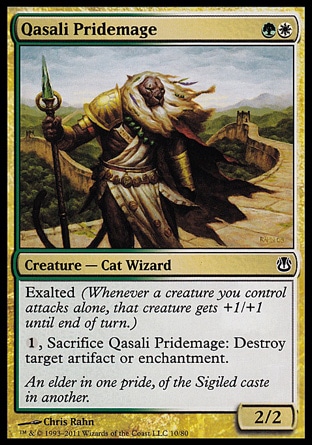
You control Sublime Archangel and Qasali Pridemage. No other permanent you control originally has Exalted.
In your combat phase, you declare only Qasali Pridemage attacking. Three Exalted triggers go off: two of Qasali Pridemage (one “innateВ» and one “granted”) and one of Sublime Archangel.
If all triggered abilities resolve safely, then Qasali Pridemage gets three times +1/+1 and becomes a fat cat 5/5.
Evidently, in order for an Exalted to trigger, you need to control the permanent with Exalted when the triggering event occurs.
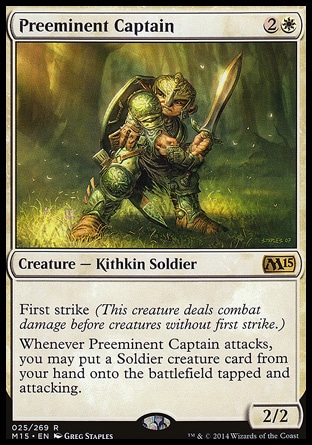
You control Sublime Archangel and Preeminent Captain. No other permanent you control originally has Exalted.
During the Declare attackers step you declare only Preeminent Captain attacking. Two Exalteds (one of Sublime Archangel, and one granted to Preeminent Captain) and the second ability of Preeminent Captain trigger.
If you put triggers onto the stack so that the Captain’s trigger is on top, then as you resolve it and put a Soldier onto the battlefield, that Soldier will gain Exalted through Sublime Archangel’s third ability. But it won’t trigger because the Soldier was not on the battlefield when the triggering event happened (declaring Preeminent Captain a lone attacker).
After two remaining triggers resolve, the Captain gets +1/+1 twice and becomes 4/4. The newly-recruited soldier keeps its original “sizeВ».
Exalted resolves still during Declare attackers step, which is before an opponent has a chance to block. Naturally, both before and after each individual trigger resolves, the opponent gains priority and may take an action, such as casting an instant spell or activating an ability.
An ability that has triggered and was put onto the stack doesn’t depend on its source, which means that the fate of the source after the ability has triggered doesn’t impact its resolution.
The effect of Exalted lasts from the moment of its resolution until the end of turn. If it so happens that the creature attacks alone multiple times in a combat, it may become very large:
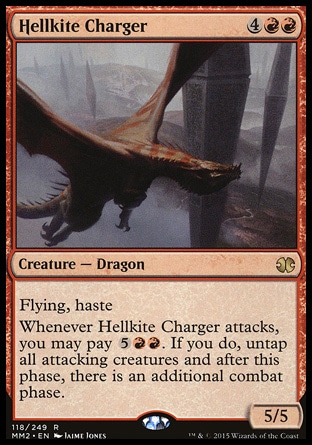
You control Sublime Archangel and Hellkite Charger. No other permanent you control originally has Exalted.
If you declare Hellkite Charger as the only attacker, three triggers go off: two instances of Exalted and Hellkite Charger’s second ability.
If you pay {5RR} as Hellkite Charger’s second ability resolves, there will be an additional combat phase this turn.
After the triggers resolve, the dragon becomes 7/7. And if you decide to attack with just it during the next combat phase, the triggers will go off again, and a 9/9 monster will rush at the opponent.
I hope this covers all possible questions about Exalted. We need to talk about situations when players forget or pretend to have forgotten about Exalted.
Missed Exalted trigger
I think you’ve heard by now that events at Competitive and Professional REL do not suppose any responsibility for missed triggers controlled by your opponent.
This means that you are not obliged to remind your opponent of his or her Exalted triggers, but you may do so if you wish (like when Intrepid Hero is eagerly looking at you).
In order for the trigger to not be considered missed, the player must indicate that he or she is aware of it at the time it matters, i.e. when its effect changes the visible state of the game.
When you play against a player who uses cards with Exalted, you need to ask him or her about the size of the creature. Then you will find out whether he or she has missed the triggers.
When you use Exalted yourself, you may keep tactical silence until the very moment it matters for the first time. Just don’t miss the moment when the awareness of those triggers must be demonstrated.
If you miss your own Exalted, unfortunately it’s too late. The missed trigger may appear on the stack only if your opponent wishes that. Since Exalted is a beneficial effect, the judge will not issue a punishment for missing it, but you sort of punished yourself already by missing it. If you do get punished, appeal to the head judge without hesitation.
Finally, the most grim scenario: a player misses his or her trigger intentionally. This is a very grave infraction treated as Cheating and is punished with disqualification. Never do that!!
As the last touch, I’d like to remind that a creature’s current Power/Toughness is the so called Derived information). You are not obliged to help your opponent derive it, but you may not deceive your opponent. If an opponent asks you how large an attacking creature currently is, you either say as it is, or advice your opponent to do the maths him/herself or call a judge.
- ⇑ The effect of Sublime Archangel’s third ability depends on Turn to Frog (they are both applied on layer 6, and at that, after Turn to Frog’s effect is applied, Sublime Archangel’s ability effect ceases to exist), so it is applied last. By applying the effect of Turn to Frog first, we erase Sublime Archangel’s ability. When it is the time to apply the Archangel’s ability, it is not there, so Sublime Archangel will be a 1/1 blue Frog without abilities, and all other creatures your control will lose one instance of Exalted.
- ⇑ At Regular REL, you are still supposed to call a judge when you realize an opponent has missed his or her trigger.
- ⇑ At Regular REL, derived information is instead considered open. The trick “count it yourself or invite a judge” doesn’t work, you will have to answer honestly.
Translated by Witas Spasovski

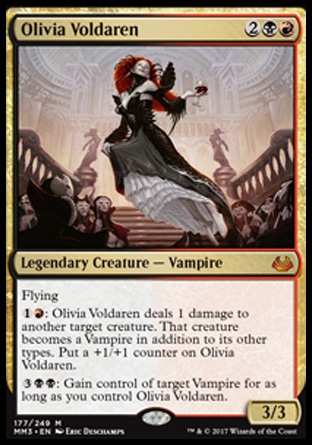
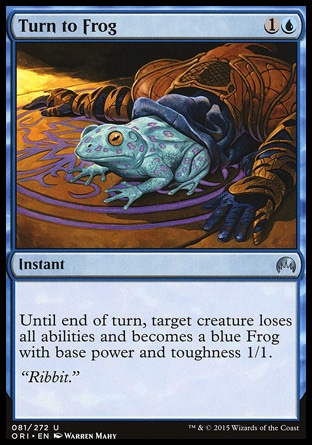
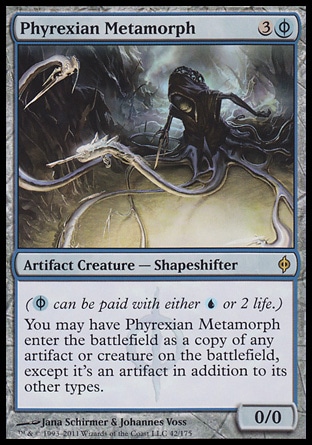
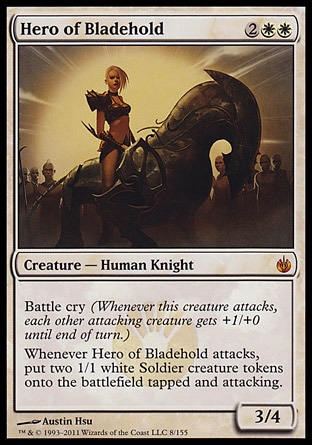

You declare Hero of Bladehold an attacker. Neither you, nor your teammate (if this is 2HG) declares any other creatures attacking. Hero of Bladehold brings two buddies along. Now you control three attacking creatures.
So, in this situation Hero of Bladehold “attacks alone”, but isn’t a creature “attacking alone”
Check Dream Prowler out. He doesn’t like it when something else “is attacking”